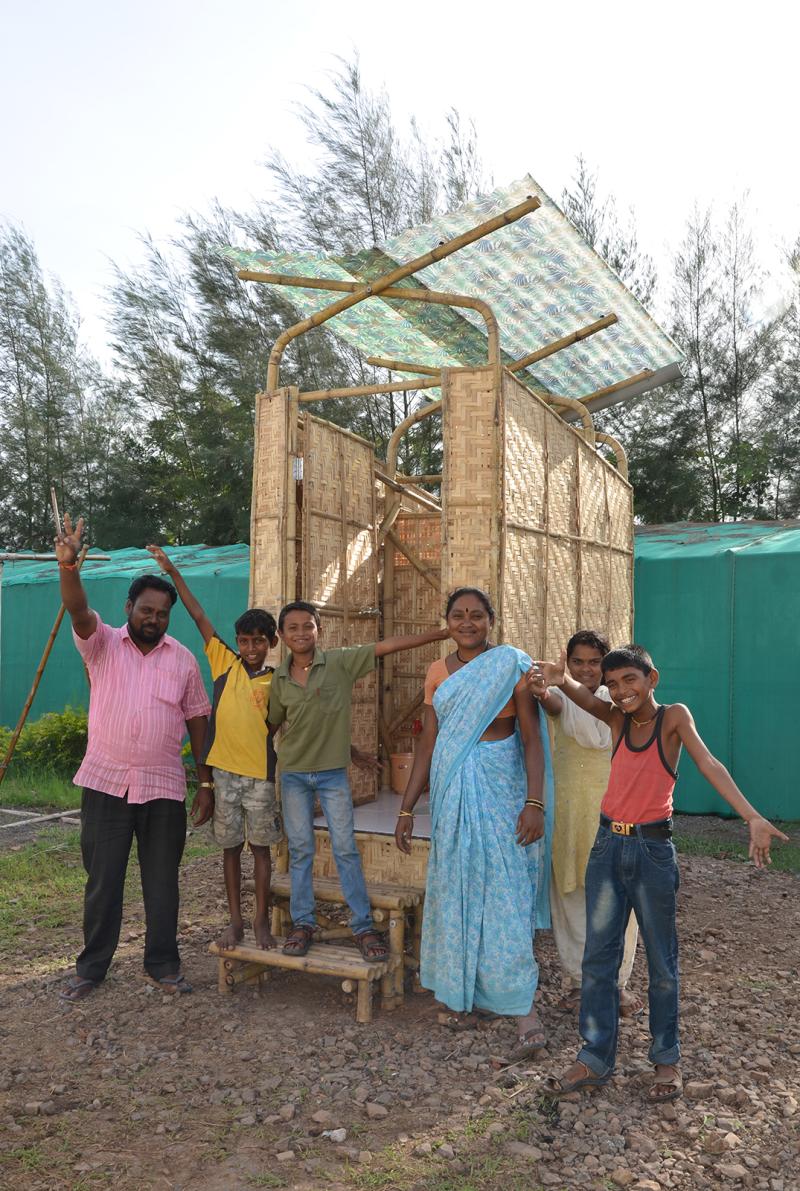George Chow, recipient of OSU Global Gateway Graduate Student Research Abroad Grant

SUSTAINABLE SANITATION SYSTEM HELPS REDUCE HEALTH RISKS IN INDIA
When George Chow, an M.F.A candidate in design research and development at Ohio State, read that an estimated 4.5 million children under the age of 5 had died worldwide over the last three years as a result of waterborne diseases, he became determined to somehow improve the lives of those in need.
According to the World Health Organization, this issue is compounded by the fact that 1 billion people worldwide defecate in the open, and as Chow learned, 579 million of those people are in India. Not only does this affect water supply and health, there is economic impact as well. Inadequate sanitation in India amounts to $53.8 billion a year in health care costs, productivity loss and even premature deaths.
Armed with a research grant Chow traveled to a village near Phaltan, India in July 2014 hoping to address the need of rural families and provide them with cheap, sanitary waste disposal. Working with the Appropriate Rural Technology Institute (ARTI) and information gained through interviews with rural Indian families, Chow constructed a sustainable sanitation system using local bamboo that boasts quite a few additional features: The methane collection from the decomposition of human waste can be used to boil water and even produce electricity; over 100 gallons of water can be collected from the roof of the structure that is used to flush the toilet and rinse hands; and a solar light illuminates the structure at night. Eventually, Chow hopes to develop a system that will allow the water to be used for a shower on the outside of the structure.
Most private toilet structures in India cost about 50,000 rupees, roughly more than $800. However, Chow’s structure only costs 6,000 rupees or about $100. Chow hopes that this affordable, sustainable structure could provide proper sanitation to millions of people, reducing health risks and lessening the economic impact affecting those in India and beyond.

